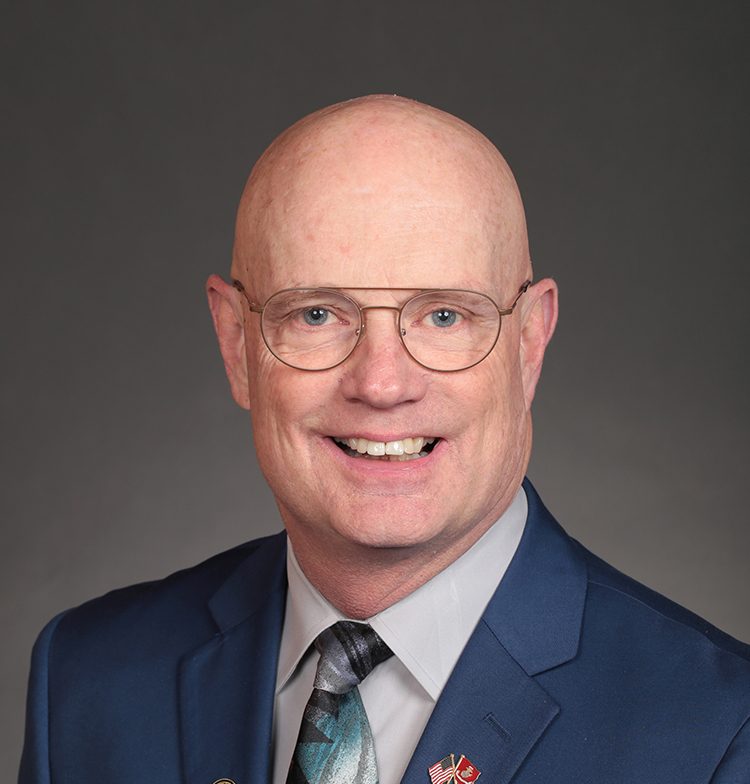In Week 11 of the 2021 Legislative Session, House Republicans continued to hear the concerns of constituents to address the need for more parental choice in education. We have great school districts in our area, however, the decisions of some school boards, administrators and teachers have left parents with little if any options when it comes to having input into the education of their children. A number of parents in other parts of the state are unhappy with their public school system and feel that their voices and concerns have been ignored.
Legislation requiring all school districts to offer 100% in-person learning, and prohibiting racist and sexist concepts (Critical Race Theory) from being mandated in training or taught as fact without additional discussion in K-12 schools, have been passed in the House. The next step is offering additional options for Iowa families. Not all families wanting options are able to send their children to private school, and some communities do not have alternatives to the public school system. Public charter schools are an avenue to help provide more choice. Currently, the state of Iowa can form charter schools, with two successful charter schools currently operating. However, it is exceedingly difficult to start a charter school under current code. HF813 will increase the opportunity for additional charter schools to form in Iowa. Despite the claims of some Democrats, charter schools in this legislation are not private schools. The first line of the bill reads “Charter schools shall be part of the state’s program of public education.”
House Republicans want every student to have access to a quality education. HF813 will provide more educational opportunities to more students, particularly to those who need it most. Charter schools are not likely to be needed or created in our local area, but certainly could be a great option in larger urban areas of Iowa.
Specific rules and guidelines are mandated to ensure that charter schools adhere to public school guidelines in many areas, such as transparency, quality, oversight, and admittance, while at the same time creating flexibility that could be beneficial to certain students in need of alternatives.
Numerous mandates help ensure that community need and support are demonstrated. Additionally, charter schools would be required to admit all who apply, provide special education services, and adhere to Chapter 21 open meetings laws.
I believe that charter schools could provide an opportunity for greater parental choice in education in larger urban areas, and in districts in which school boards are ignoring parental concerns as it relates to the indoctrination of their children with divisive concepts that in some cases run contrary to deeply held religious beliefs.
How Do Parents Fight Back Locally Against Critical Race Theory in Schools?
SchoolhouseRights.org supports civil rights litigation in defense of students’ freedom of conscience in public education and the rights of parents to guide and direct the upbringing of their children.
The organization developed a guide for parents who are concerned about the infiltration of Critical Race Theory (CRT) into schools and classrooms across the country. The House approved House File 802 last week to stop the advance of these divisive and un-American concepts in Iowa schools without additional perspective and discussion. It is just a first step. Below is information provided by SchoolhouseRights.org:
CRT is a racist, sexist, and anti-religious ideology that sows mutual hostility between people of different backgrounds in the name of “social justice.” CRT often forces students to accept its derogatory labels and assumptions as part of mandatory K-12 curricula.
If you answer “yes” to the questions below your student may be entitled to relief under the First Amendment, Fourteenth Amendment, Title VI, Title IX:
Viewpoint Discrimination:
- Is the teacher or curriculum failing to present students with opposing points of view?
- Is the teacher or curriculum discouraging students from considering alternative points of view?
- Are students penalized or treated disrespectfully for expressing different points of view?
Thought Reform:
- Are the course and questionable assignments mandatory?
- Are students forced to affirm ideas they disagree with, unlearn beliefs, or abide by an ideology?
- Does the course forbid students from open disagreement or shut down open discussion when a student disagrees?
Labeling:
- Does the teacher label certain races, sexualities, sexual identities, genders, or religions as “oppressive, oppressors, privileged, or victims”?
- Are students forced to associate certain races, identities, or religions with oppression or privilege?
- Are the students forced to label or discuss their own race, sexuality, gender, or religion as part of a mandatory class or assignment?
Other Concerns:
- Did the district or teacher fail to notify parents of or allow parents access to highly controversial or sensitive material related to sexuality in the curriculum?
- Is the instruction or curriculum age-inappropriate, inflammatory, or disruptive to learning?
- Do the actions of the teacher or administration, or the content of the curriculum, create a hostile environment for the student with respect to race, gender, sexual identity, or religion?
Next Steps:
Try to save written records related to the above “yes” answers, including homework or class assignments. Express concerns and objections in writing to teachers, staff, and administration. If concerns continue, contact an attorney.
Training/curriculum using these divisive concepts may create a hostile and toxic workplace. The US Equal Opportunity Employment Commission (EEOC) defines a hostile or toxic work environment as one that involves “unwelcome conduct that is based on race, color, religion, national origins, age, disability, or genetic information,” That conduct “may include, but is not limited to offensive jokes, slurs, epithets or name-calling, physical assaults, or threats, intimidation, ridicule or mockery, insults or put-downs, offensive objects or pictures and interference with work performance.
Calling out one racial group as privileged in official mandatory training sessions or in official institutional statements is just a euphemism for labeling that racial group as superior to another. It creates a workplace that is “intimidating, hostile or offensive to reasonable people,” which is not allowed according to the EEOC.
In the state of Iowa, The Iowa Board of Educational Examiners’ (BOEE) mission “is to establish and enforce rigorous standards for Iowa educational practitioners to effectively address the needs of students.” Parents and guardians of students can file complaints with the BOEE regarding potential violations of the Code of Professional Conduct and Ethics by licensed practitioners under the jurisdiction of the BOEE. According to the BOEE’s website, “To warrant investigation by Board staff, complaints must relate to an alleged violation of one or more rules in the Code of Professional Conduct and Ethics, which can be found in Chapter 25 of the Board’s administrative rules.” Those administrative rules include:
- 25.3(6) Standard VI—unethical practice toward other members of the profession, parents, students, and the community. Violation of this standard includes:
- Denying the student, without just cause, access to varying points of view.
- Deliberately suppressing or distorting subject matter for which the educator bears responsibility.
- Failing to make reasonable effort to protect the health and safety of the student or creating conditions harmful to student learning.
- Conducting professional business in such a way that the practitioner repeatedly exposes students or other practitioners to unnecessary embarrassment or disparagement.
- Engaging in any act of illegal discrimination, or otherwise denying a student or practitioner participation in the benefits of any program on the grounds of race, creed, color, religion, age, sex, sexual orientation, gender identity, disability, marital status, or national origin.
- Failing to comply with federal, state, and local laws applicable to the fulfillment of professional obligations.
- Failure of an administrator to protect the safety of staff and students.
It is vital that parents know what their children are being taught in school and take action as needed.

















